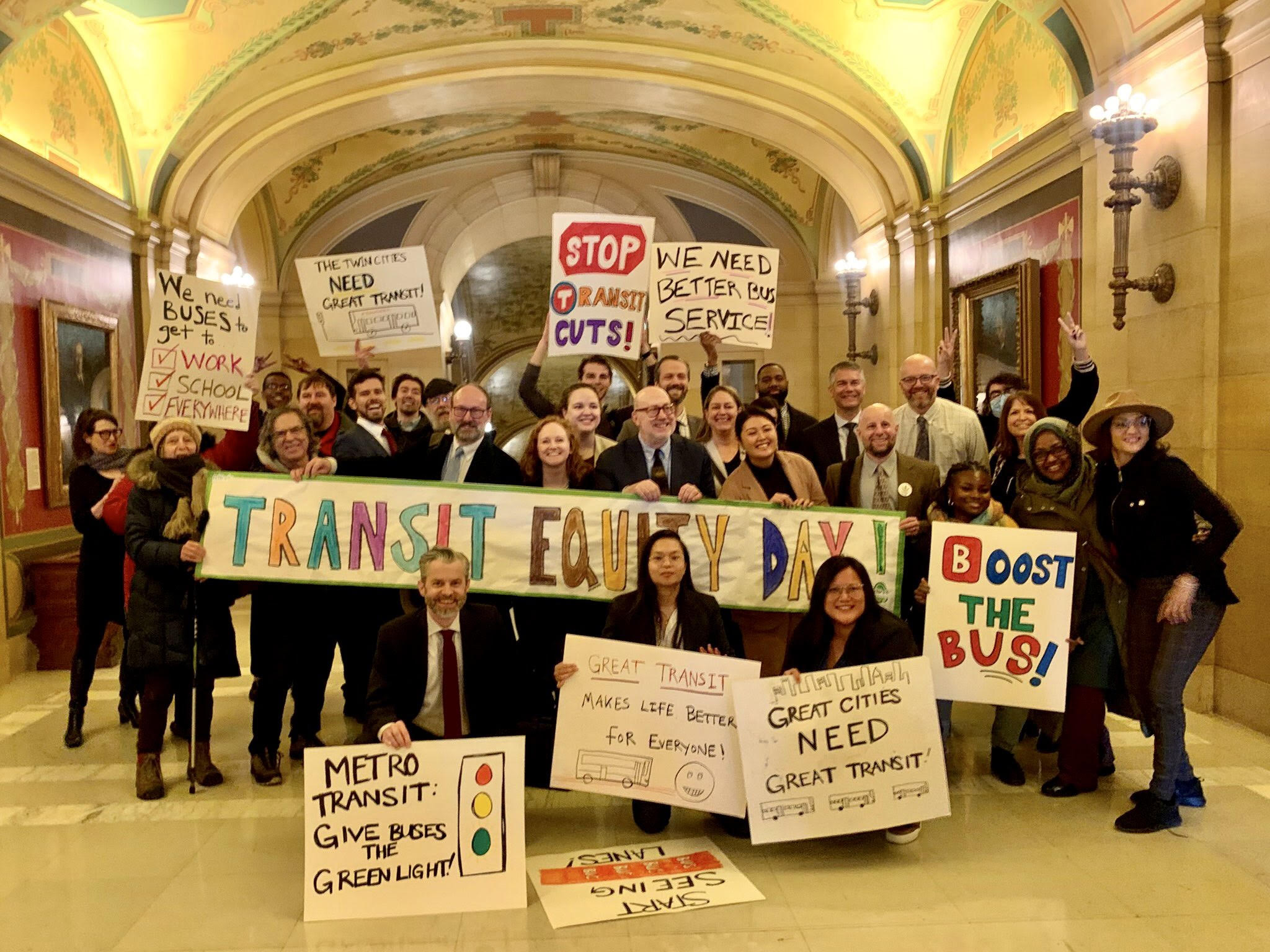Discussions, rallies, lobbying, artwork, and a birthday cake. On February 4, communities across the country celebrated Transit Equity Day, which is held annually on the birthday of civil rights icon Rosa Parks.
Over the last six years, Transit Equity Day has grown into a rallying call that has reached the attention of Transportation Secretary Pete Buttigieg and united people across the nation– transit riders and bus drivers, environmental activists and disability rights advocates– all to uplift various local demands to transit agencies, including expanding fare-free transit, increasing pay and protections for transit workers, expanding routes, and electrifying our bus systems to move away from the polluting status quo.
As Transit Organizer and Transit Equity Day Project Manager Bakari Height said in Sierra Magazine, “Transit Equity Day isn’t just a day of action. This day passes the torch from civil rights leaders like Rosa Parks and Claudette Colvin to the current labor and environmental justice leaders, and all of the tireless and dedicated transit advocates and labor unions who recognize the need to make this massive mode shift a reality by calling on leaders to change transit inequities.”
On a national level, we joined the Labor Network for Sustainability and other partners in hosting a livestream that focused on a range of topics, including predatory micro-transit, the free-fare movement, disability access, labor solidarity, and Amtrak expansion.
The backbone of Transit Equity Day and transit advocacy year-round are the volunteers and staff that engage at the local level. This year, Sierra Club continued to participate in hosting events in Ohio, Georgia, Massachusetts, Minnesota, Maryland, Vermont, Virginia, Nevada, and Tennessee, among others.
Some organizers, like those with Sierra Club’s Ohio chapter, used the day as an opportunity to join with partners at a rally in front of the statehouse to call on state legislators to prioritize equity in the budget.
The Massachusetts chapter engaged with residents across the state to call on Governor Healey to electrify the commuter rail system, prioritizing environmental justice corridors, address fare reform to make the commuter rail affordable for all riders, and actively pursue federal funding to modernize the system.
Our North Star chapter took to their statehouse as well. People testified in hearings in both the House and Senate, repeating the mantra “Fund Transit Now.” Further north in the Twin Ports, mayors of Duluth, Minn. and Superior, Wisc. declared Transit Equity Day proclamations, while Duluth Transit Authority provided free fares for all. Artist Moira Villiard unveiled three new paintings of Claudette Colvin, Pauli Murray, and Rosa Parks. And the Commission on Disabilities, Duluth Public Schools, Family Freedom Center, and Zeitgeist Center for Arts and Community held a mobility event.
In Maryland, the Prince George's County Sierra Club Group, in partnership with Alpha Kappa Alpha, celebrated with a special community forum in Landover, to raise awareness of equity issues in their local transportation system. After several local leaders spoke and everyone shared in lunch and birthday cake, participants shared their own ideas and experiences in facilitated discussions about health and safety concerns and what would make their community’s transportation options more equitable and sustainable.
The advocacy to make public transit better extends to some of our car-dependent states too. The Vermont chapter of the Sierra Club hosted a dialogue to uplift the activism of several transportation leaders around the state seeking to ensure the rights of all people to high-quality and pollution-free public transportation.
We’re so inspired by the local events happening nationwide that make Transit Equity Day a reality every year! Every event is a reminder of how many Americans want better, more equitable transit and transportation options nationwide.
